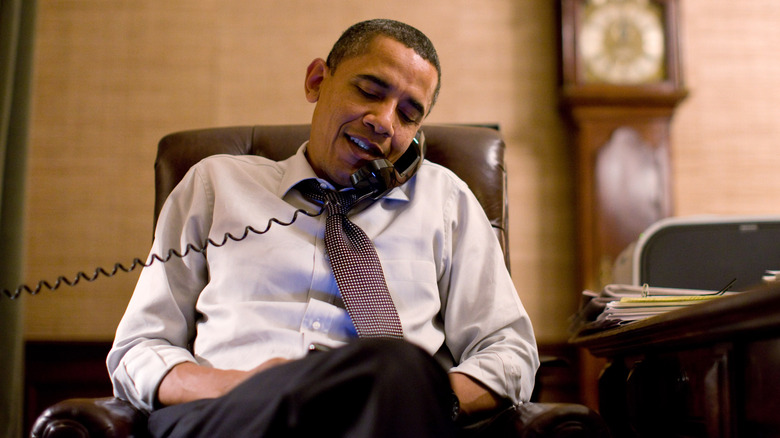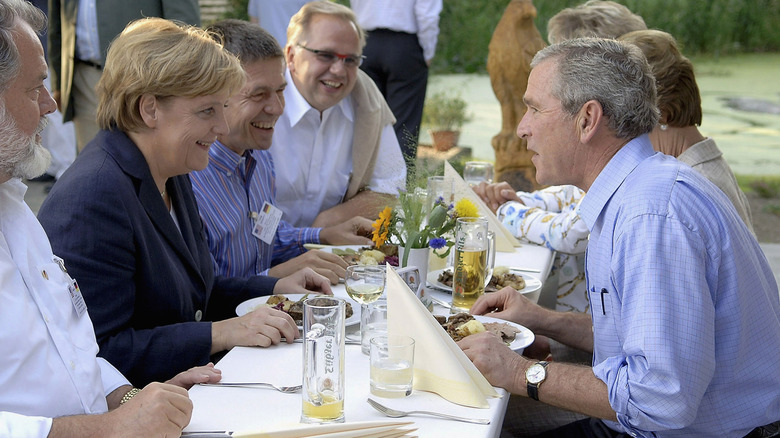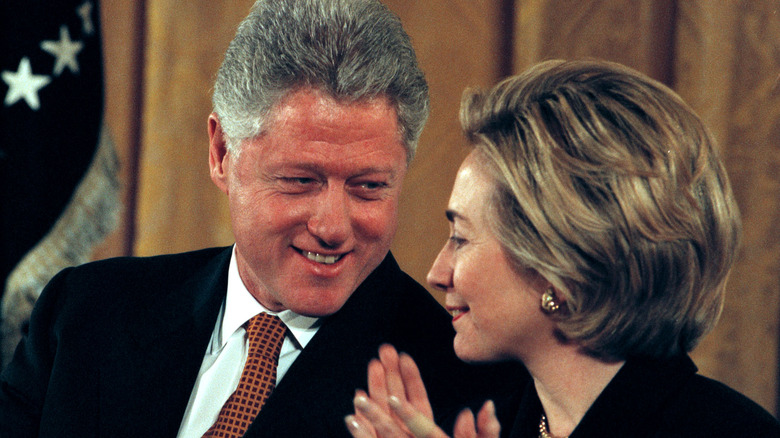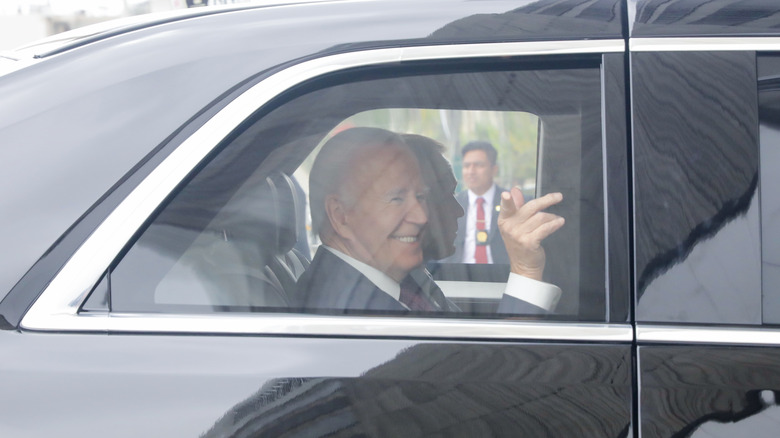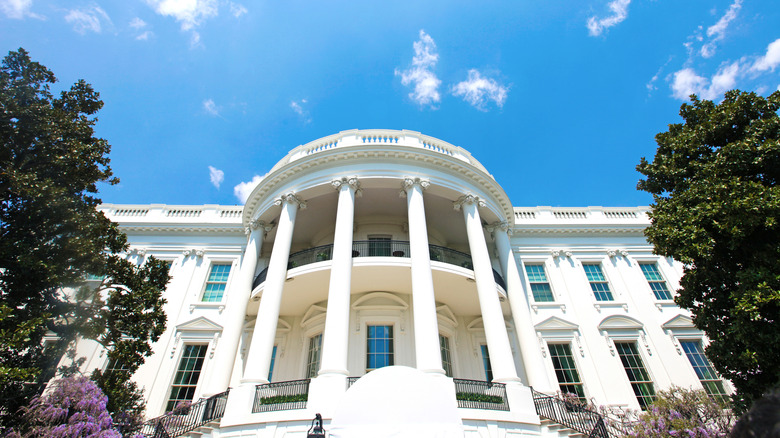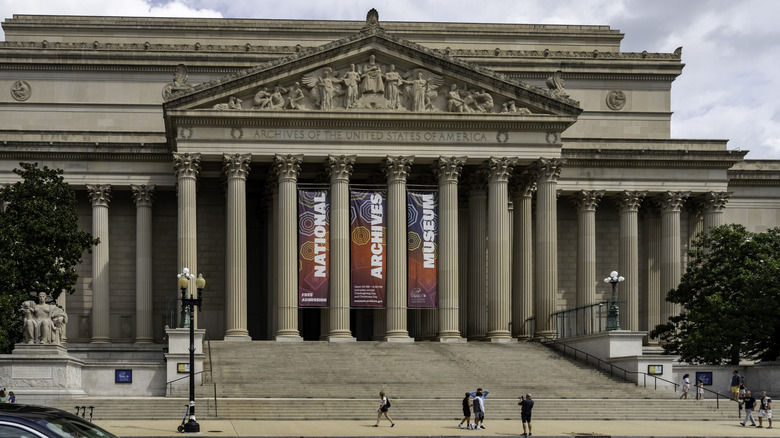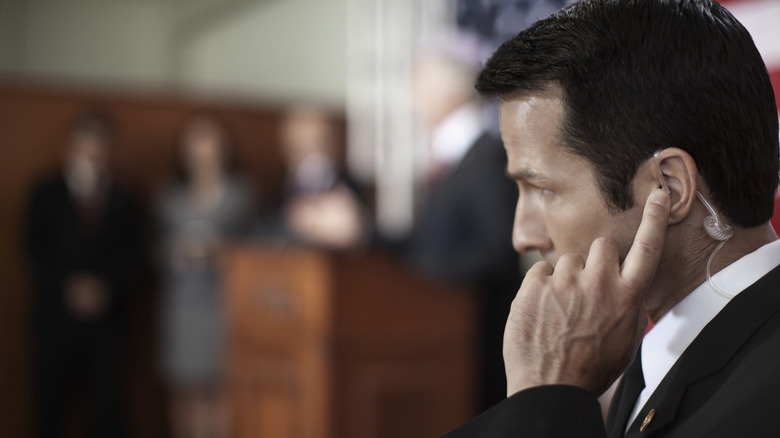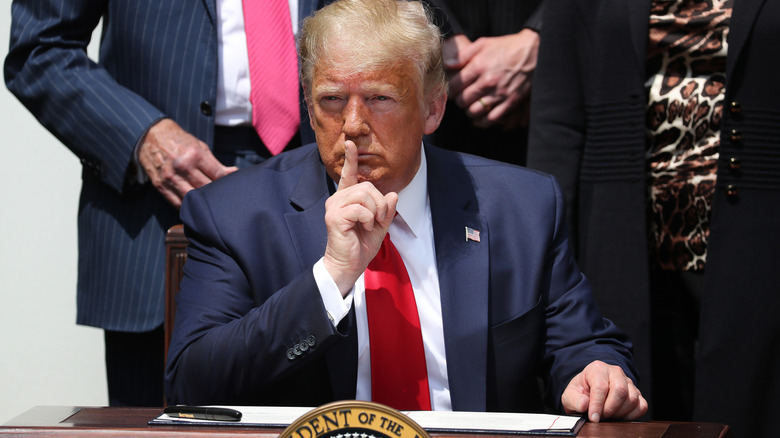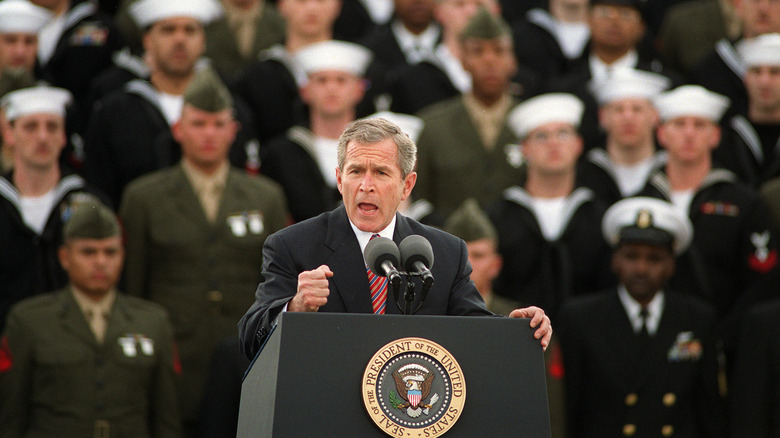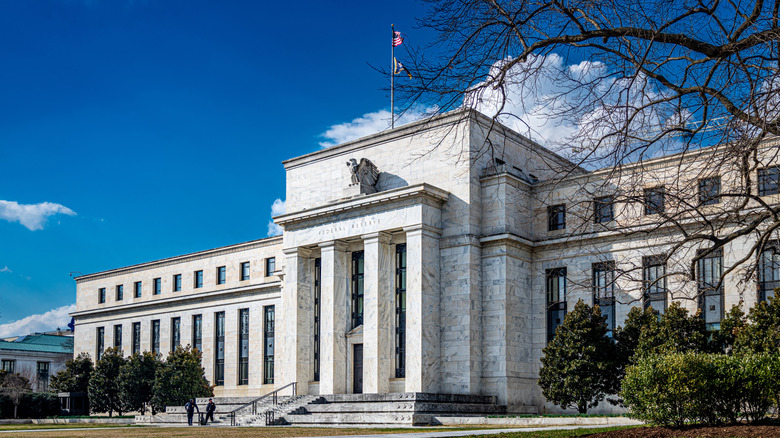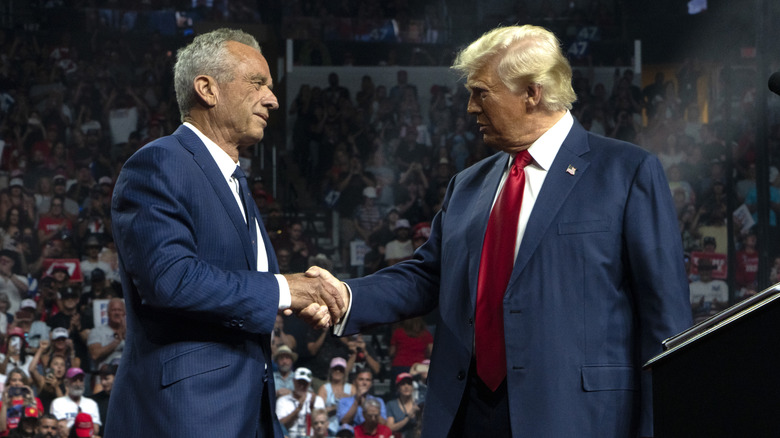The presidency of the United States of America is arguably the most powerful political office on the planet. U.S. presidents are in charge of the world’s strongest economy as well as the most powerful standing army, with a budget of more than $800 billion – hundreds of billions more than its nearest rivals such as China and Russia, and 10 times that of its closest allies, such as the United Kingdom.
Advertisement
To be the head of such a country is undoubtedly to wield incredible strength, but the truth is that domestically, abroad, and even in their daily lives as they go about the business of running the United States, presidents are subject to a huge number of rules governing their behavior. Some of these rules are to guarantee that political action remains democratic — certain checks and balances that ensure that even the executive branch can’t exert their power without a certain amount of agreement within the wider government, or succumb to corruption. Elsewhere, there are regulations put in place to protect the president and those around them, both from themselves and from those who may consider them a target of attack. Here are some of the rules that American presidents, powerful as they may be, are expected to follow.
Advertisement
Calls must be secure and officially logged
In 2014, highlighting the base tools of executive action, Barack Obama declared: “We are not just going to be waiting for legislation in order to make sure that we’re providing Americans the kind of help that they need. I’ve got a pen, and I’ve got a phone” (per Forbes).
Advertisement
With the phone playing such a key role in the operation of modern government, it is unsurprising that the devices have long been the target of bugs and hacking attempts by foreign agents. As such, security services typically ask presidents to use official lines, have security features on all their devices, and log their calls.
This has become more of an issue for presidents over the course of the last two decades, when cellphones have become the norm when it comes to accomplishing all kinds of tasks, not just making calls. Indeed, it created several headlines during the first presidency of Donald Trump, who, it was revealed in 2019, was still using his personal cell phone years into his administration, despite worries from his security staff. It had previously been reported that Trump, who for years has been an ardent user of social media, declined to switch phones regularly for the sake of security, saying the precaution was “too inconvenient” (per Politico). He was criticized once again in 2021, when it was revealed that he had made an unlogged call to Republican Senator Mike Lee on the day of the Capitol Hill attack on January 6.
Advertisement
Their meals are monitored
Since the early Roman Empire, poisoning has been used as a discreet method of assassination against those in power. And while technology in terms of how humans can kill each other has advanced through the centuries, everyone still has to eat — including American presidents — and poisoning represents a continued security risk in White House administrations in the 21st century.
Advertisement
There are therefore several security procedures that ensure the sitting president, their family, and top White House officials are eating food prepared in a secure environment by trusted chefs. At the White House, chefs and staff are given a special security clearance, which means once vetted, they are allowed to carry on their work in the kitchen without the direct monitoring of the Secret Service. Away from Washington, however, responsibility for ensuring presidential meals are safe and untampered with falls to whatever body is overseeing security as a whole: At Camp David, for instance, meal security is provided by the U.S. Navy, with Navy chefs preparing the president’s meals. It has even been reported that in foreign territories and insecure locations, “screeners” are employed to monitor how food is prepared and, supposedly, to taste food for safety when necessary, though reports of their use remain anecdotal. It was once reported that President Barack Obama offended Republican senators by refusing to eat a lobster salad at lunch as there was no screener on hand to verify that it was 100% safe.
Advertisement
Presidents have to report gifts
One of the primary functions of the presidency of the United States of America is diplomatic, with the president, their family, and close aides often meeting with foreign leaders and prominent figures to further the country’s political interests. Many such meetings involve an exchange of gifts. On the world stage, giving gifts is largely symbolic, and gifts over a certain value are considered gifts to the people of the nation.
Advertisement
However, smaller gifts, and those given by non-governmental bodies or private citizens, may be retained by the president and their family, as long as receipt of them is recorded and transparent. In some cases, they are expected to pay taxes on the gifts they receive. The first family can wind up being the recipients of thousands of gifts from members of the general public, too, though many, including portions of food, fragrances, and cosmetics, are destroyed by the Secret Service for safety reasons.
According to a Republican congressional investigation, the Clintons failed to declare roughly $1 million of gifts from prominent figures and supporters including Nelson Mandela and Malcolm S. Forbes. In some cases, the items were immediately donated to the presidential library, so the Clintons were not required to report them. However, it was also alleged that the Clintons had undervalued many of the gifts, causing a scandal. They also made the unusual step of returning furniture valued at $28,000 to the White House. The couple had erroneously taken the items upon leaving office, having seemingly believed they were gifts meant for the family rather than the government.
Advertisement
Presidents cannot drive themselves
For many, one of the major perks of being successful in life is being able to afford a nice car that you enjoy driving. But while the office of president is undoubtedly well remunerated — the salary is around $400,000 a year, plus an expense allowance of $50,000 – for drivers, the role can be particularly frustrating due to the fact that presidents are generally banned from getting behind the wheel under any circumstances.
Advertisement
It may seem like a harsh rule, but there is reportedly a very understandable reason for it. During a president’s administration, they are protected at all times by Secret Service personnel, whose job it is to be the last line of defense for the president in case of attack. Such agents are specially trained and learn evasive driving maneuvers intended to help get the presidential car out of danger in hazardous situations as quickly as possible. To not have such skills at the ready when the president is in transit would represent an unnecessary security lapse, and, as such, a Secret Service agent remains behind the wheel at all times.
No open windows
The Secret Service are known to be especially strict when it comes to securing the safety of the president and the first family, sometimes to the point at which their precautions may appear unfair or ridiculous. One such precaution that has come to light in recent years involves the Secret Service’s strict window policy, which requires that the first family refrain from opening windows in the White House while they are resident, or from doing so when traveling by car.
Advertisement
It is a rule that has taken its toll on presidential families, with Michelle Obama making reference to it during an appearance on “The Late Show with Stephen Colbert” back in 2015. When asked what she was looking forward to once her husband left office — by then, Barack Obama was three years into his second term — she replied, “I want to do little things like, you know, open a window” (per Huffpost). In any case, it would likely have been difficult for her during her stay at the White House, as most windows are fitted with thick bulletproof panes.
They have to keep records
Though the president of the United States is the most powerful person in the country, there is still a great deal of oversight in place to ensure that whoever is in the Oval Office is using their position primarily in the service of the American people. The Presidential Records Act of 1978, for instance, makes incumbent presidents responsible for managing and maintaining the records of their administration, which are then to be kept by the National Archives and Records Administration.
Advertisement
The rule was brought into effect in the wake of the Watergate scandal, in which the Nixon administration attempted to cover up a burglary of the Democratic National Committee headquarters. The act states that “all such steps as may be necessary to assure that the activities, deliberations, decisions, and policies that reflect the performance of the President’s constitutional, statutory, or other official or ceremonial duties are adequately documented,” providing transparency around presidential action (via the Congressional Research Service). As such, all correspondence and documents related to the presidency — excluding purely private correspondence — must be retained, a duty that has posed problems for numerous presidents. Bill Clinton, for example, recorded a series of tapes during his presidency with the historian Taylor Branch, which Branch later used for a book. The National Archives and Records Administration was later sued by a right-wing body that claimed the tapes belonged to the nation, though it was later ruled that a president has the right to decide which records are presidential and which are private. Donald Trump invoked this ruling in his defense when criticized over his removal of classified documents from the White House at the end of his first administration.
Advertisement
They cannot refuse Secret Service protection
The Secret Service was founded in 1865 by the U.S. Treasury Department, initially to deal with counterfeiting of U.S. dollars. As the decades passed, the service’s responsibilities evolved, and since 1901 it has been the primary protection for U.S. presidents, as well as candidates, ex-presidents, and their families. When the Secret Service is seen to fail, it is a major scandal.
Advertisement
The Secret Service’s responsibility for providing presidential security came after the assassination of President William McKinley, and as recent history has demonstrated, such a final line of defense remains necessary in our current age, with two high-profile assassination attempts against presidential nominee Donald Trump in 2024. Nevertheless, accompaniment by armed Secret Service personnel undoubtedly takes its toll on the first family, representing a constant invasion of privacy. Unfortunately, Secret Service protection is mandatory, with presidents and their families being legally bound to be protected by agents at all times for the good of the country. And like the president, the Secret Service has a lot of rules of their own they have to follow.
Advertisement
They can’t make laws on their own
The president of the United States is the head of state, the head of government, and the head of the executive branch. It is the president who selects members of the Cabinet and the heads of all the government’s federal agencies. However, when it comes down to it, the United States operates under a democratic system, which limits the president’s executive power with a system of checks and balances.
Advertisement
Arguably the most illustrative example of this is that despite wielding immense power, sitting presidents are not able to pass laws unilaterally. Instead, that responsibility lies with Congress, with bills only arriving on the president’s desk once they have been voted on. The president then has the chance to veto the bill, though this could be overridden by another congressional vote to force the bill through the Oval Office. If a president leaves a bill unsigned and Congress remains in session, then the bill becomes law automatically 10 days later. However, if there is an adjournment in Congress, an unsigned bill is subject to a “pocket veto,” meaning it does not become law.
They cannot declare war
The president of the United States is also the commander-in-chief of the armed forces, with sole authority to authorize use of the nation’s nuclear arsenal (which makes things tricky when the nuclear launch codes get misplaced). The president is also responsible for a great deal of military decision making, signing off on highly sensitive operations. President Barack Obama, for example, was intimately involved in co-ordinating the raid on Osama bin Laden’s Pakistan compound, which led to the terror leader’s death in a shoot-out with SEAL Team Six operatives.
Advertisement
However, despite being at the top of the military tree and in a position to direct the armed forces, the president does not have the power to declare war outright. In Article 1, Section 8 of the Constitution, it is stated that the power to declare war lies with Congress. Presidents have occasionally sought congressional approval for military operations, such as those put into action by President George W. Bush in the aftermath of the terror attacks of September 11, 2001. But the truth is that large-scale military force has repeatedly been used without congressional approval, and debate continues as to how the “Declare War Clause” ought to be interpreted in the modern age.
Presidents have no direct control over banking or government spending
The Federal Reserve System is the engine room of the United States economy, responsible for maintaining financial stability through a range of measures, including setting interest rates, managing the supply of dollars, and acting as a regulator for banks and other financial institutions. It is tasked with both growing the economy and controlling inflation, and its decision making has repercussions for the price of almost everything, as well as the state of the job market.
Advertisement
The president of the United States has no official power to influence the running of the Federal Reserve. The head of the institution is the chair, who liaises with the Oval Office and with Congress while enjoying autonomy from both. Though the chair is appointed by the president, the president has no power to fire them once in place. Such autonomy has seen some presidents attempting to influence the Federal Reserve chair, such as Richard Nixon, who during his controversial presidency pressured chair Arthur Burns to lower interest rates for the sake of speeding up the economy in the short term and increasing Nixon’s chances of reelection.
Similarly, the president is not in direct control of government spending. Congress is given the power to set the federal budget, and to set which spending is mandatory.
Advertisement
They need Senate approval for big appointments
In the months following a presidential election, news outlets offer seemingly continuous reports as to who is due to serve in the new administration. In such stories, it can appear that the president has carte blanche to appoint whoever they want as their “pick” for the government’s top jobs. However, it doesn’t work quite like that.
Advertisement
The Constitution declares that rather than hire appointees like employees in a business, the president “shall nominate, and by and with the Advice and Consent of the Senate, shall appoint Ambassadors, other public Ministers and Consuls, Judges of the supreme Court, and all other Officers of the United States.” The Constitution thus requires that nominees be approved by a majority of the Senate, which can cause problems for controversial picks.
A mechanism exists by which nominations can be pushed through as “recess appointments,” with the Constitution stating that presidents have the power to fill vacancies without approval when the Senate is in recess. Several recent presidents have made use of such a mechanism; however, as recess is called by the Senate itself, a majority of senators could prevent recess to stop an incoming president from appointing controversial picks.
Advertisement
This post was originally published on here


